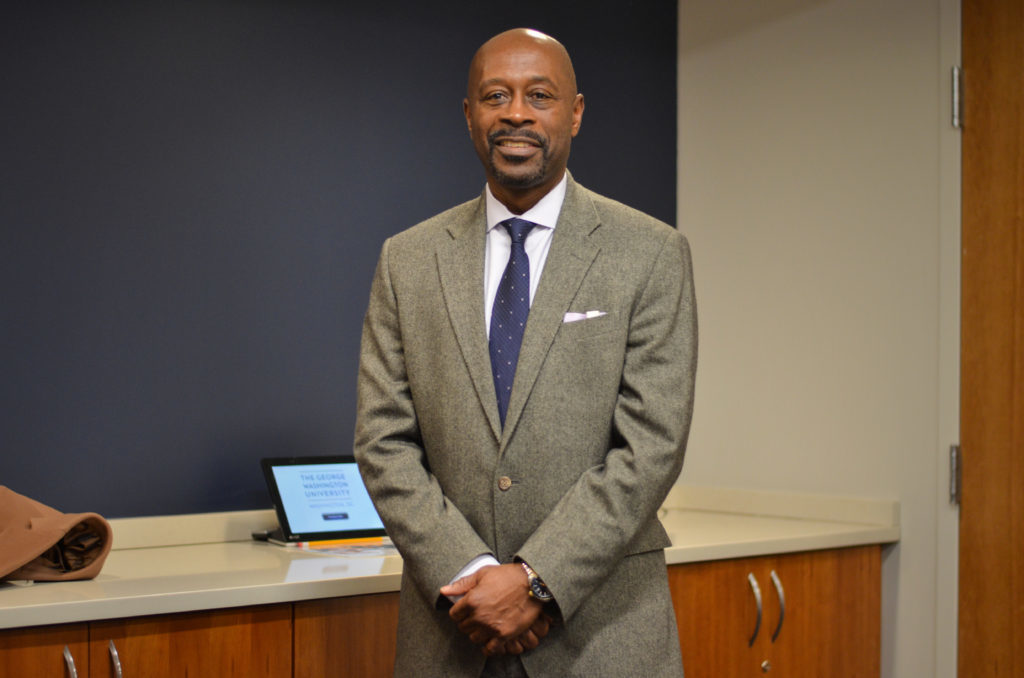Positions were eliminated but no staffers were laid off during a round of budget cuts last year in the security office, the University’s top security official confirmed last week.
Nine months ago, University leaders announced that staff in the Office of Emergency Management and the Office of Health and Safety would be reorganized under the Division of Safety and Security. Darrell Darnell, the senior associate vice president for safety and security, said some empty positions were eliminated during the changes but that staff members’ new responsibilities have made them more engaged in their jobs.
Darnell said the transition increased efficiency and has led staff members to be trained in multiple subjects. For example, some office workers have switched from working on environmental health and safety to occupational safety, he said.
“From a morale standpoint from our staff, I think they really like it because now they’re doing things they weren’t doing in the past,” he said.
Darnell said he is prepared to make decisions on future budget cuts but did not give details on what he would eliminate. In December 2015, University President Steven Knapp announced that all administrative offices would have to cut their budgets 3 to 5 percent each fiscal year through 2022.
“Whatever is put before us, we’re gonna work within that budget, and I think we’re gonna be able to keep the University safe,” he said. “I’m confident about that.”
The Office of Emergency Management and the Office of Health and Safety were combined to form the Office of Health and Emergency Management Services. Darnell said in a release then that combining the two offices would improve the division’s operational effectiveness.
Gloria Graham, the deputy chief of police and assistant vice president of the Department of Safety and Security at Northwestern University, said cross-training staff is in her department’s strategic plan to keep employees engaged and to highlight their individual talents.
“Finding ways to tap that additional talent and to keep people engaged, that’s really every leader’s goal,” she said.
Graham said a year is not long enough for an office reorganization to be complete. More than a year ago, the Department of Safety and Security at Northwestern took the Office of Global Safety and Security and the Transportation and Parking function under its belt, and they are still working on parts of the transition, like combining the offices’ budgets, she said.
“The culture of an organization within an organization is important, and allowing folks to maintain the pieces of their culture that they can is important,” she said.
The University of Georgia’s Office of Research Safety split from the Environmental Safety Division in 2015 and staff were cross-trained in both offices, according to its website. And at Duke University, the Occupational and Environmental Safety Office created the new Laboratory Safety Division this year.
Ellen Kossek, a professor of industrial and organizational psychology at the Krannert School of Management at Purdue University, said getting employees’ feedback is necessary when merging two offices.
“You can’t just take people from different groups and say, ‘You’re a team,’” she said. “You need to do some process to bring them together.”
When combining two offices that previously required different skill sets, office leaders should offer staffers some choice in what new jobs fit them, Kossek said.
Kossek added that officials should get employees’ feedback to find out if they should make any changes to an office’s environment.
“With any change, there is a growing pain, but hopefully given that they’re a new group there should be some cultural work,” she said.




